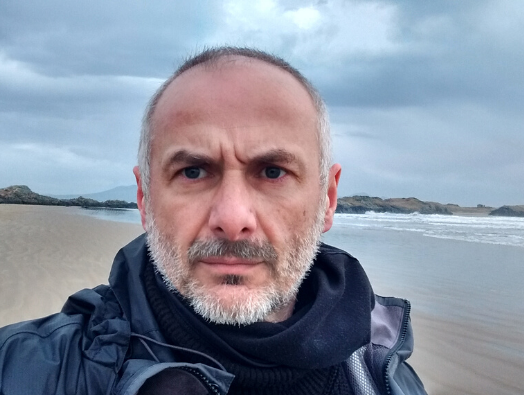At the end his first week at the Franklin, Dr Caitlin Higgott, the Franklin’s Communications Officer, interviewed Bela (in person, following social distancing rules!). They discussed what he would be doing at The Franklin and where it fits with the Biological Mass Spectrometry theme plans.
What is your role at the Franklin?
I’m the Head of Molecular Structure Elucidation in the Biological Mass Spectrometry (BMS) theme. I will be responsible for developing molecular ID strategies and the corresponding software to assist projects within the BMS theme. I will be working in collaboration with other Franklin themes and partner institutions.

What does developing ID strategies entail?
Mass spec techniques involve “weighing” molecules on extremely sensitive “molecular scales”. Most of the time this molecular mass information is not sufficient to identify molecules – many structurally different molecules have the same mass – so we need to break down molecules and weigh these fragments to find out what they are made of. My job is to work out how these fragments fit together so we can understand the structure of our target systems ranging from small molecules to large proteins, a little bit like doing a jigsaw puzzle at the molecular level.
At the Franklin, the challenge will be even greater than usual, because the experimental BMS team led by Professors Josephine Bunch and Zoltan Takats will build new ground-breaking instrumentation which will provide spatially-resolved molecular information of molecular interactions down to cellular level. My biggest challenge will be to develop computational strategies and software that will keep up with these experimental developments by processing raw MS data. Another challenge will be then transferring this data into clinically/biologically relevant and interpretable information which can then assist with drug development.
What are the potential applications of this work?
Mass spectrometry is one of the most sensitive analytical technologies with a great number of existing clinical and pharmaceutical applications ranging from newborn screening and drug testing to immunology. The BMS theme develops new technologies that will go far beyond the current status quo by assessing molecular interactions between proteins and also small molecules (metabolites) by mapping these at the cellular level. This information is of critical importance to understand health and disease and strongly needed to develop new drugs and/or personalized medicine approaches.
What excites you most about working at the Franklin?
The vision of the Franklin excites me, it exists to challenge the status quo and being part of that is really thrilling. Josephine and Zoltan are currently building new instruments that will eventually revolutionise the field with a potential to become the “mother of all mass spectrometry instruments”. As a theoretician I am extremely excited to be part of such a development.
Also, it is unusual within mass spectrometry for a theoretician like me to be working so closely with experimentalists, like Josephine and Zoltan, so this is really innovative. I think that this new way of working, combining our different skills will allow us to deal with these big challenges in the field.
What drew you to work in interdisciplinary science?
My work is in analytical science, I want my work to be useful and to be used, otherwise it is pointless. The Franklin is the ideal place for doing such useful analytical science. I am absolutely sure that the BMS theme will strongly contribute to the Institute’s core mission bringing about transformative changes in life science through interdisciplinary research and technology development.
Tell me a bit about more your background?
I started my career studying chemistry and completed my PhD in quantum chemistry in Budapest. Following this, I moved to the German Cancer Research Center (DKFZ) in Heidelberg where I was first post-doc and later run my own group as a Heisenberg fellow of the German Research Foundation (DFG). My group has worked on how peptides fragment in mass spectrometers to develop “rules” that could be used to solve their ID “jigsaw” problem. This work was appreciated by the American Society for Mass Spectrometry by awarding me their 2011 Biemann Medal. Then after working at the University of Arizona for 1.5 years with my Heisenberg fellowship, I joined Bangor University as Professor of Chemistry. I am extremely happy now to join the Franklin and work with a world-class experimental team on biological mass spectrometry.
Find out more about our BMS theme and/or Dr Bela Paizs.